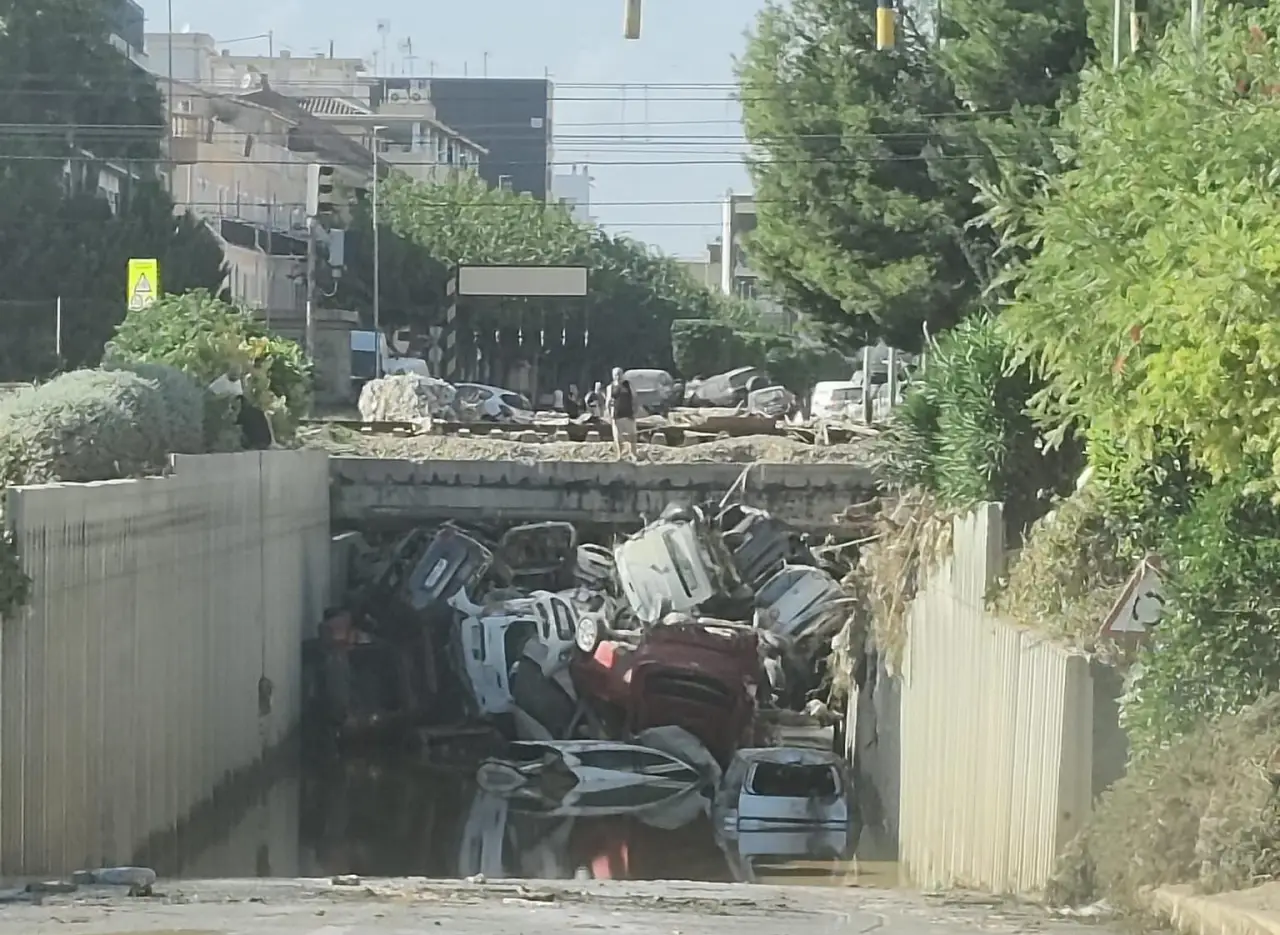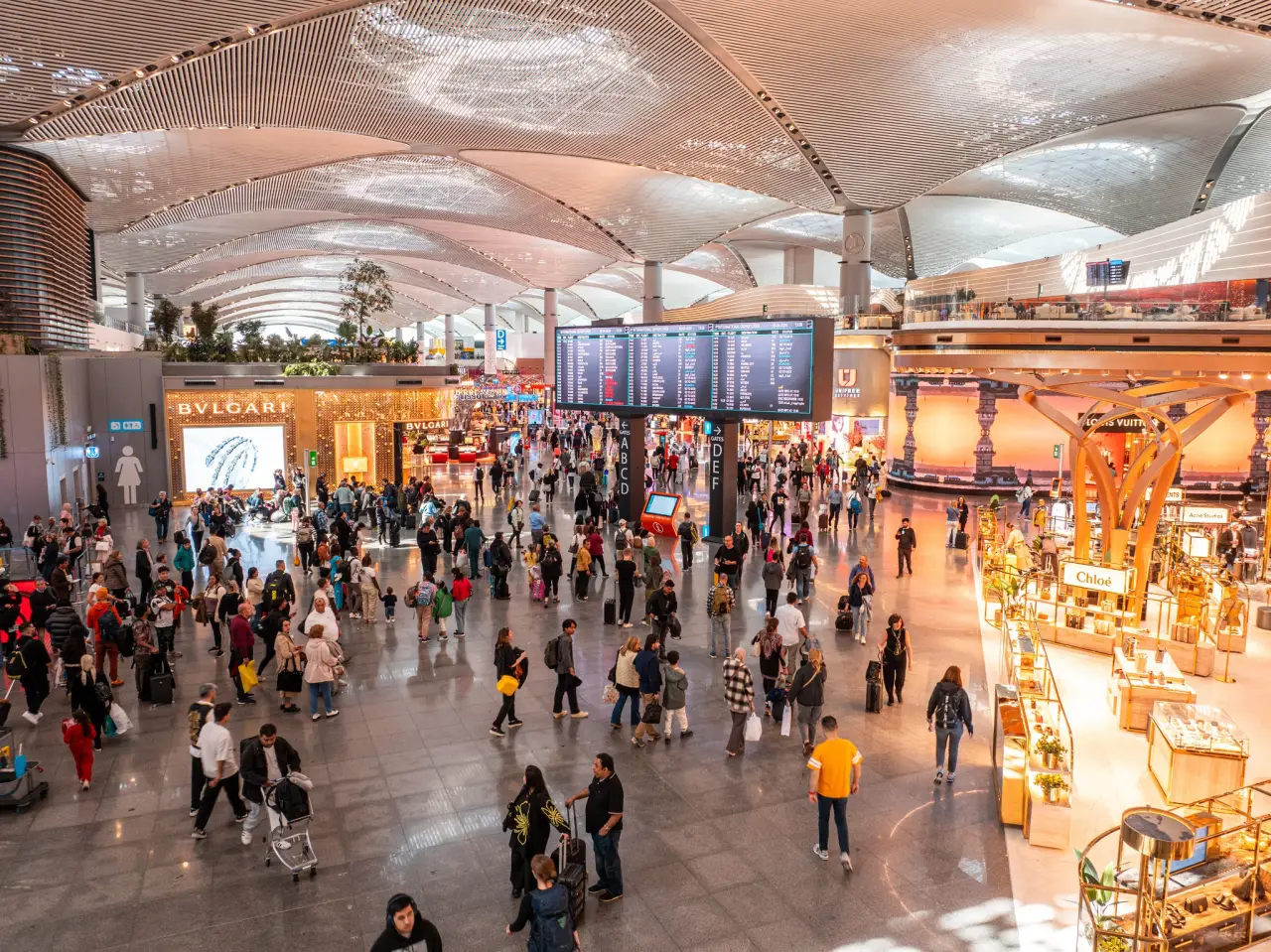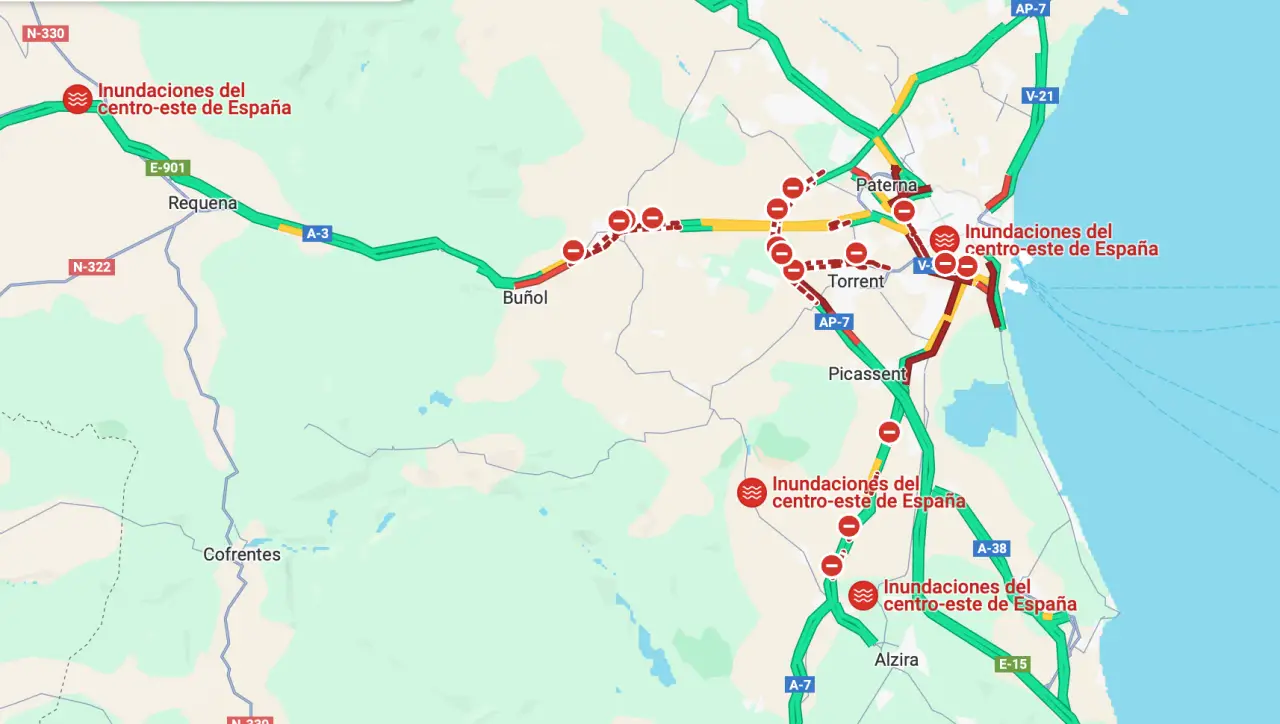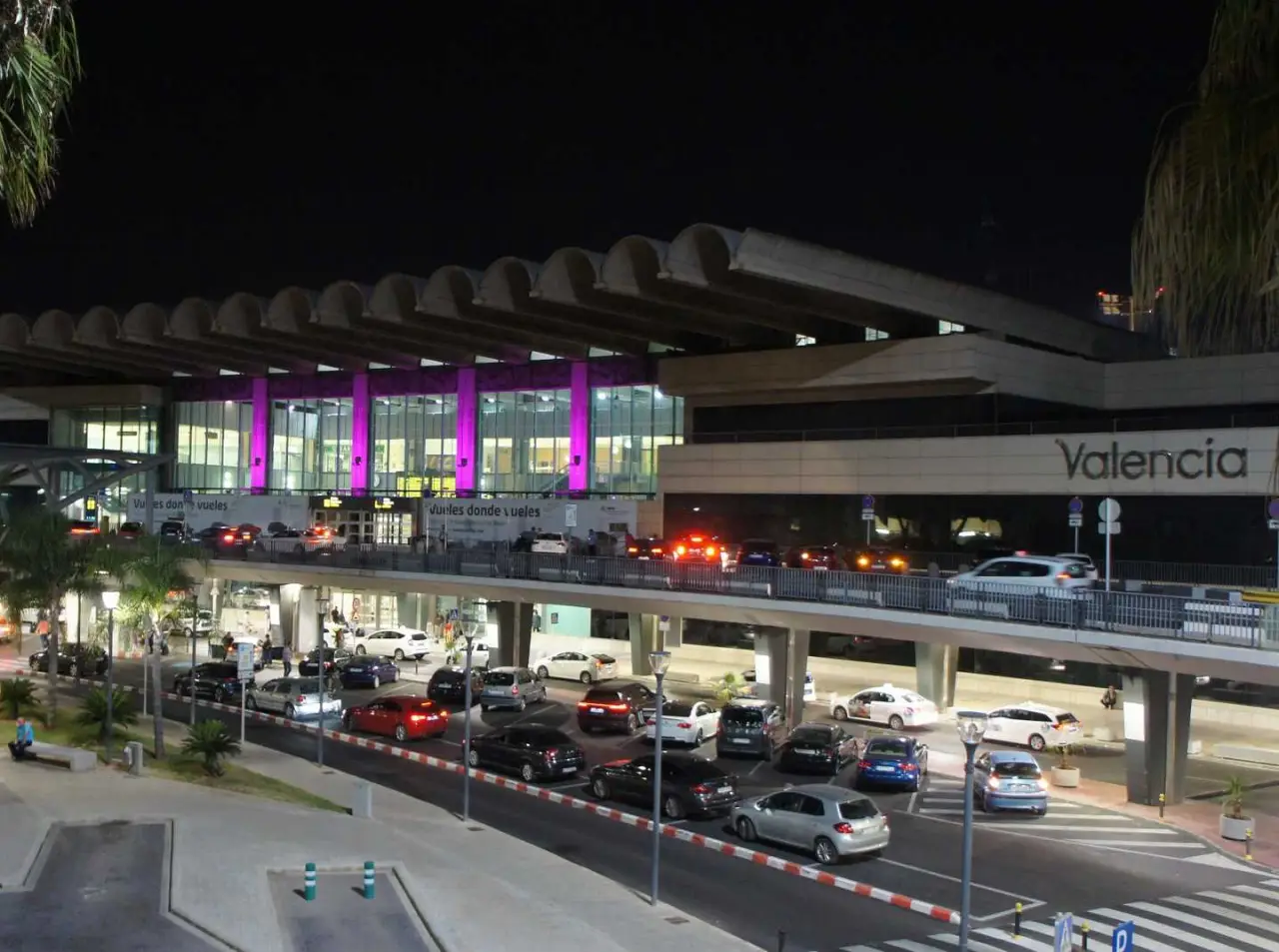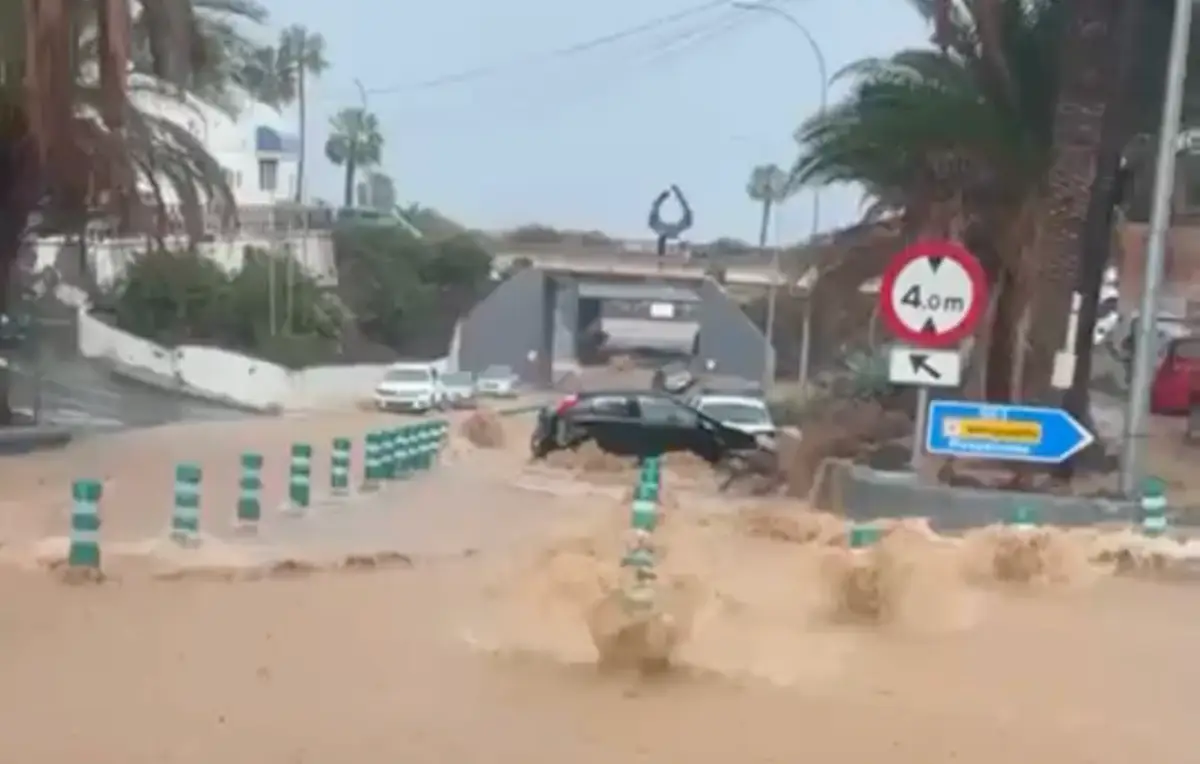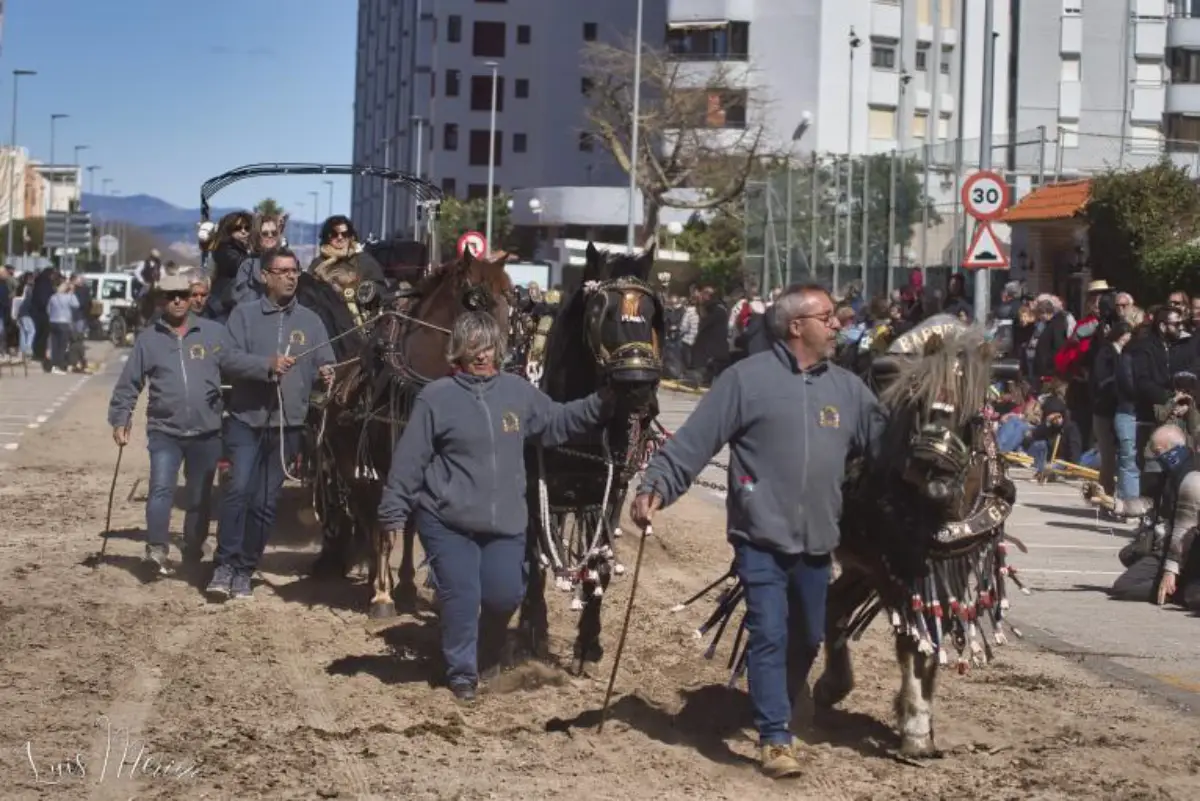Valencia’s transportation network is grappling with severe damage following recent floods, impacting major railway lines and highways throughout the province.
The Valencian railway lines and state-managed roads are expected to face extended delays, with repairs potentially taking weeks or even months, according to Minister of Transport Óscar Puente.
Both commuter and high-speed trains, alongside crucial highways like the A-7 and the Valencia bypass, are currently impassable. Before beginning infrastructure repairs, stranded vehicles—including numerous cars and trucks—must first be cleared from roads covered in debris and mud. Puente advised that mobility remains unsafe in the affected areas as recovery operations continue.
The General Directorate of Traffic (DGT) issued a travel advisory yesterday, urging citizens to avoid traveling to the province of Valencia during the All Saints’ Day weekend (1-3 Nov). The collapse of a viaduct near the A-3 junction in Quart de Poblet—a section usually handling about 100,000 vehicles daily—has rendered the A-7 impassable. The replacement of this critical structure may take several months. Authorities are exploring temporary measures, including a 40 km/h lane on a parallel route, but the solution could take several weeks to be operational. Other restricted detours, including the V-30 and V-31, are also being assessed for low-speed access.
Meanwhile, local and regional railways are experiencing unprecedented disruptions. The section between Valencia and Silla, deemed “ground zero” of the disaster, has suffered extensive damage, as have parts of the C3 line from Utiel to Valencia. In total, about 90 kilometers of railway are affected, with 45 kilometers destroyed and another 25 severely damaged. The rail lines C5 and C6, although repaired, remain on standby until weather conditions stabilize.
Valencia’s high-speed rail service between Valencia and Madrid has also been suspended. Key sections, including the Chiva and Torrent tunnels, have suffered substantial structural and flooding issues. Restoration efforts for the AVE high-speed service are anticipated to last at least three weeks, with the possibility of further delays as damage assessments continue.
Efforts are also underway within the Metrovalencia network, which remains inactive. Ferrocarrils de la Generalitat Valenciana (FGV) has initiated repairs on the metro and tram systems, prioritizing the recovery of its flood-damaged command center in València Sud. However, service resumption may still be days away.
The extensive transportation delays and infrastructure damage have reshaped regional mobility in Valencia, highlighting the challenges of recovery as authorities work to restore vital connections.

